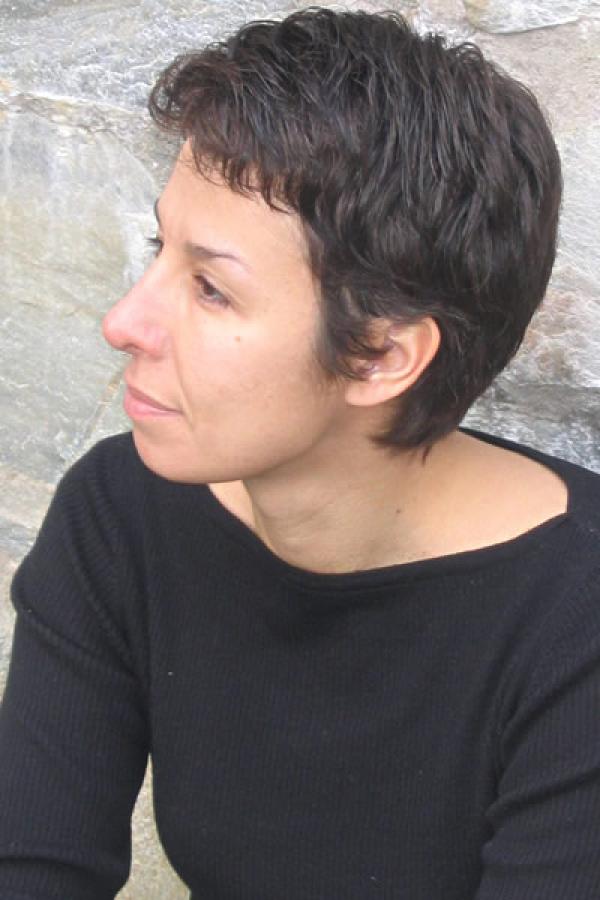Courtney Brkic

Photo by Brigitte Brkic
Bio
Courtney Angela Brkic is the author of Stillness: and Other Stories and The Stone Fields, both from Farrar, Straus & Giroux. She received an MFA from New York University, and has worked as a creative writing teacher, a translator and as a forensic archeologist in Bosnia-Herzegovina. She is the recipient of a Fulbright Scholarship, a Whiting Writers Award and was nominated by The Index on Censorship for a Freedom of Expression Award. Her work has appeared in Zoetrope, Harpers & Queen UK, The New York Times, The Washington Post Magazine, National Geographic, Dissent and The Alaska Quarterly Review, among others. She teaches fiction at George Mason University.
Author's Statement
I am very grateful for an NEA fellowship. The award will enable me to work on The Sun in Another Sky, my novel project of five years, and on a short story collection about immigration. Financial and time constraints are two grim realities that face the majority of writers, and I am no exception. This fellowship gives me precious breathing room for which I am extremely thankful.
From the short story "Gathering up the Little Gods"
Although the cancer has spread - "Didn't you feel any pain in your stomach?" the doctor asks, perplexed - she is young and otherwise healthy. These are the descriptions she will hear again and again, as she goes from one specialist to the next, as if they are working from an identical script. In the final doctor's office, as a joke, she writes them under "Medical History."
"What's this?" he asks in a slightly annoyed tone when he flips through her chart.
Except that it has spread and the thing's babies have had their own babies. And she is thirty and without health insurance. Although she occasionally sells a painting, and teaches art classes for rent, she barely has the money to pay for the tests, and certainly not for the combination of chemo and radiation they suggest.
"But surely you must have help from somewhere?" one of the insurance coordinators asks her. "And there are some forms of assistance."
Elspeth sits across the table from this woman, blinking dumbly. Insurance coordinator. Before, she had not even known that such positions exist. And now the woman is asking about Elspeth's assets, of which there are none. "What about family members?" she presses, looking squarely at Elspeth, who notices that her eyes are perfectly encircled in black, as if the woman had spent hours standing at a mirror this morning, drawing and erasing, drawing and erasing those lines.
Her parents will mortgage their house if they discover it. They will take the money they have put aside for their retirement, and so Elspeth decides not to tell them.
During this time, the three canvasses lie to the side in her studio and ideas for new projects founder before she can even sketch their outlines. She resolves to spend her days making the rounds of galleries, taking in exhibits, so that the time is not wasted. But these ideas, also, are stillborn and some days she does not get out of bed and barely registers when one television show ends and another begins.
There follows a week in which she walks obsessively, every day from first light until it is dark. One evening she finds a dead pigeon in the street and picks it up. She cradles it in her hands and decides to take it to her studio, where she lays newspaper on a table and places the pigeon on top. Its body is stiff, and heavier than she might have presumed.
She wonders how long it has been dead, whether it was moving only hours ago. "Well?" she asks the bird, her cheeks flushed. She feels a trickle of sweat between her breasts and loosens the scarf at her neck.
She hunts around the studio for a sharp knife that has not been blunted by gesso or paint, and finds a boxcutter in a drawer.
She had been good at biology, she remembers. She had dissected a frog as other girls in her Catholic High School had squealed in horror and delight around the table. Now, she holds her breath as she cuts the wing free from the bird, and pulls it between her trembling hands, opening it like an accordion and letting it close again. She looks closely and realizes that there are tiny feathers of exotic color that rest in the elbow - Do birds have elbows? she wonders.
But it is the mechanics of the thing that concerns her as she stands intently over the table with the boxcutter still in her hand. She pulls out the feathers so that she can examine the interlocking bone and sinew. She unwraps the thing like a present.
There is one small window in the studio, but she does not notice when the sky grows light outside, or when it begins to rain. She does not even notice the bird which sits on the ledge - some breathing cousin of the thing in front of her - and spreads its wings and disappears from sight.
"Gathering up the Little Gods" first appeared in The Missouri Review.

